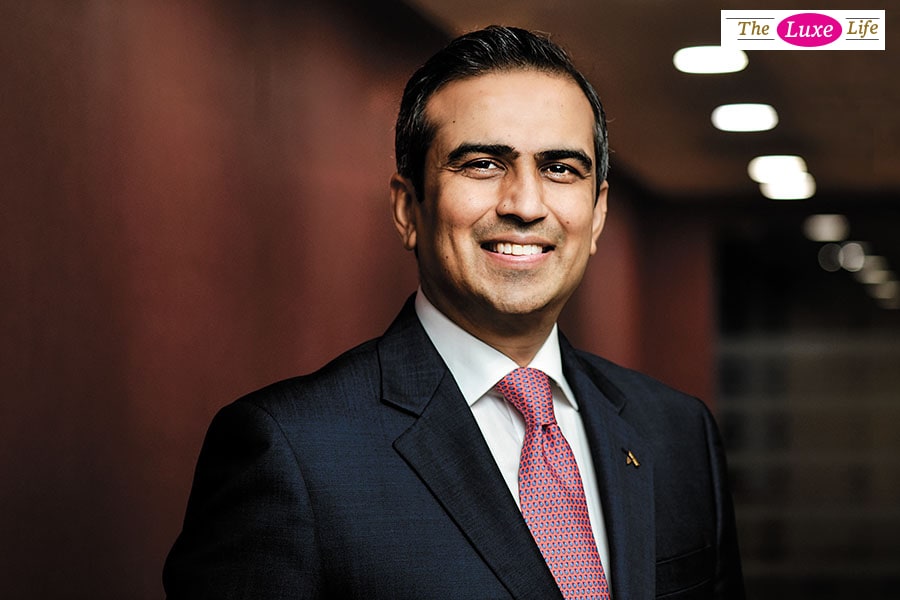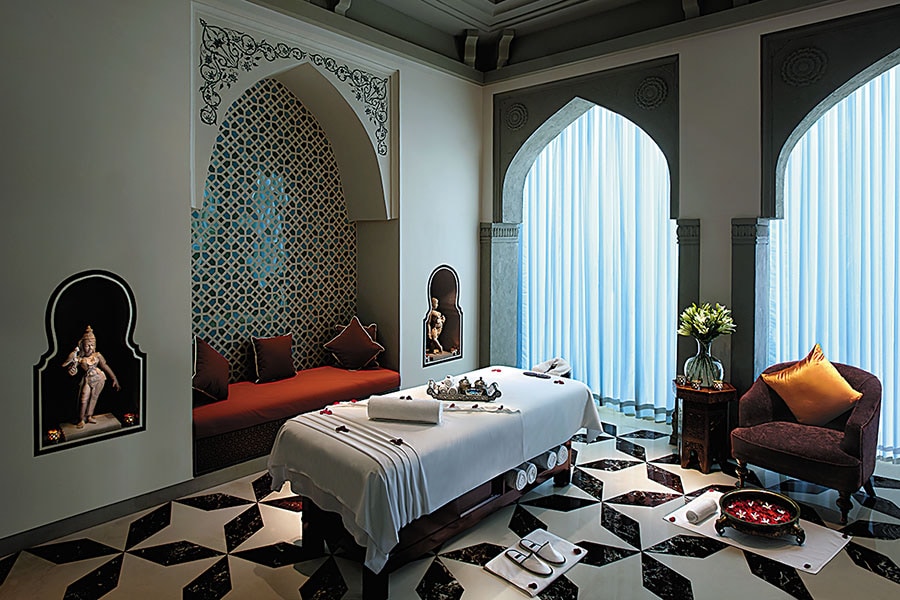
Every crisis is a catalyst for change: Puneet Dhawan
Accor India's senior VP (operations) on why his company's diverse portfolio is a great asset during the pandemic even if the end may not be clearly in sight right now
 Puneet Dhawan, senior vice president (operations), Accor, India and South Asia
Puneet Dhawan, senior vice president (operations), Accor, India and South AsiaImage: Courtesy Accor
Predicting the future can be risky. Puneet Dhawan, senior vice president (operations), Accor, India and South Asia, explains it with the golden words of Ray Dalio. The founder of Bridgewater Associates, the world’s biggest hedge fund firm, once remarked: “He who lives by the crystal ball is destined to eat ground glass.”
“It is difficult to predict recovery as there is no clear sight for the pandemic to end,” says Dhawan, the top honcho at Accor, the French hospitality major with a well-rounded portfolio of brands across luxury, premium, mid-scale and smart economy segments, such as Fairmont, Sofitel, Pullman, Novotel and ibis. Having diversity in offerings, he says, is a great asset in times of a boom as well as a crisis.
Dhawan is upbeat about a rebound in the luxury segment. “We are focussed on expanding our luxury brands in India, particularly in key commercial cities and leisure locations,” he says. Accor, which last year announced it would launch the 130-year-old luxury brand Raffles in India, is going ahead with its plan. “It will usher in a new era of luxury hospitality for discerning travellers,” he tells Forbes India. While Raffles Udaipur—being developed on a 21-acre island in the middle of Udai Sagar Lake—is scheduled to open early next year, Raffles Jaipur will open next to Fairmont Jaipur in 2022. India, Dhawan stresses, is a resilient and robust economy, with huge domestic demand drivers. “This will make it one of the first markets to bounce back,” he says. Edited excerpts from an interview:
Q. Has the pandemic changed the hospitality segment forever?
Every crisis is a catalyst for change. The impact of this pandemic is violent and unprecedented on the hospitality industry around the globe. Some changes—as it relates to technology enhancements—will be permanent, yet history shows that people’s behaviour goes back to the way it was soon after the crisis is over. The “new now” is not the new normal and our top priority currently is to make our guests feel safe in our hotels. While, in the short term, the focus will be domestic tourism, sustainable travel is becoming popular with the emergence of experiential travel.
Q. Which hotel segment will be the most resilient?
Accor has a well-rounded portfolio of leading brands—51 hotels in India and Sri Lanka, covering 23 locations. A portfolio as diverse as this permits us greater resilience and each segment shapes its own recovery. Mid-scale and economy hotels are naturally more resilient given their price and ability to offer consistent experience with seamless service, such as at our Novotel and ibis brands. Our luxury hotels, too, are perfectly placed in key destinations to spoil discerning leisure and family travellers for holistic experiences.
In the current environment, we believe the ultimate determinant for guests returning will be health and safety. As a global leader, Accor has a distinct advantage in this area with initiatives such as ALLSAFE, our stringent safety and cleanliness guidelines developed and vetted by Bureau Veritas. In addition, we are providing a series of ‘contactless’ experiences amid digital innovation, which include replacing physical menus and adopting contactless payments to name a few.
 The spa service at Fairmont Jaipur, one of the Accor properties
The spa service at Fairmont Jaipur, one of the Accor propertiesImage: Courtesy Accor
Q. As India unlocks, what kind of demand uptick are you seeing?
Three key trends have emerged: Weekend getaways, staycations and celebrating special days. People are looking for bespoke and exclusive experiences amid social distancing and safety considerations. As most people continue to work from home, we are seeing increasing interest in longer stay ‘workcations’. Business travel is showing some signs of limited recovery. We are encouraged to see weddings continuing to be celebrated. Many of our hotels, irrespective of their category or segment, have safely hosted weddings and we continue to see steady inquiries. It is heartening to see that even with shorter guest lists, weddings have not lost their grandeur.
Q. What changes have you made to stay relevant during such times?
The love for travel and experiences such as great food, interacting with people and exploring cultures are innate for all of us. Through our ALL (Accor Live Limitless) loyalty platform that integrates rewards, experiences and services, we launched a global digital entertainment campaign (ALL@Home) aimed at letting guests and the broader audiences discover experiences and live their passions while at home. This included immersive, informative and inspiring content series themed around sport, food and entertainment across our digital platforms. The new campaign—For the Love of Travel, for the Love of Now—offers attractive pricing and loyalty rewards options. Additionally, we have expanded our partnerships with airlines and the travel industry.
As the restrictions ease, we want to bring experiences and services our guests are used to by offering food delivery and takeaway options from our hotels, laundry services as well as offering our hotels as safe, alternative workspaces.
Q. Recently Novotel and ibis forayed into the co-working space…
The co-working space has great potential. For organisations it’s cost effective, and for hotels it’s an alternative revenue stream. Across our properties, we offer enhanced safety, hygiene and comfort of spaces. Amenities like high-speed Wi-Fi, 24x7 beverage and food options, on-the-go office facilities like printing and scanning, high regard for privacy, helpful team members on call and well curated spaces are available. The price varies from ₹1,500 to ₹3,500 per seat per hour and differs depending on the location of the hotel, brand, duration and also the level of customisation of the package.
Q. Where do you see the Indian hospitality market heading as we ride out this pandemic?
Depending on how long this pandemic continues to disrupt travel patterns and buying behaviours, the survival of the unbranded and independent branded hotels will be at risk. This will lead to higher brand conversion. The organisation structure will be flatter and leaner with a mission to move to a variable cost model as much as possible. While innovation will be adopted, technology will make the operation more cost-effective or enhance the guest experience.
(This story appears in the 30 November, -0001 issue of Forbes India. To visit our Archives, click here.)








